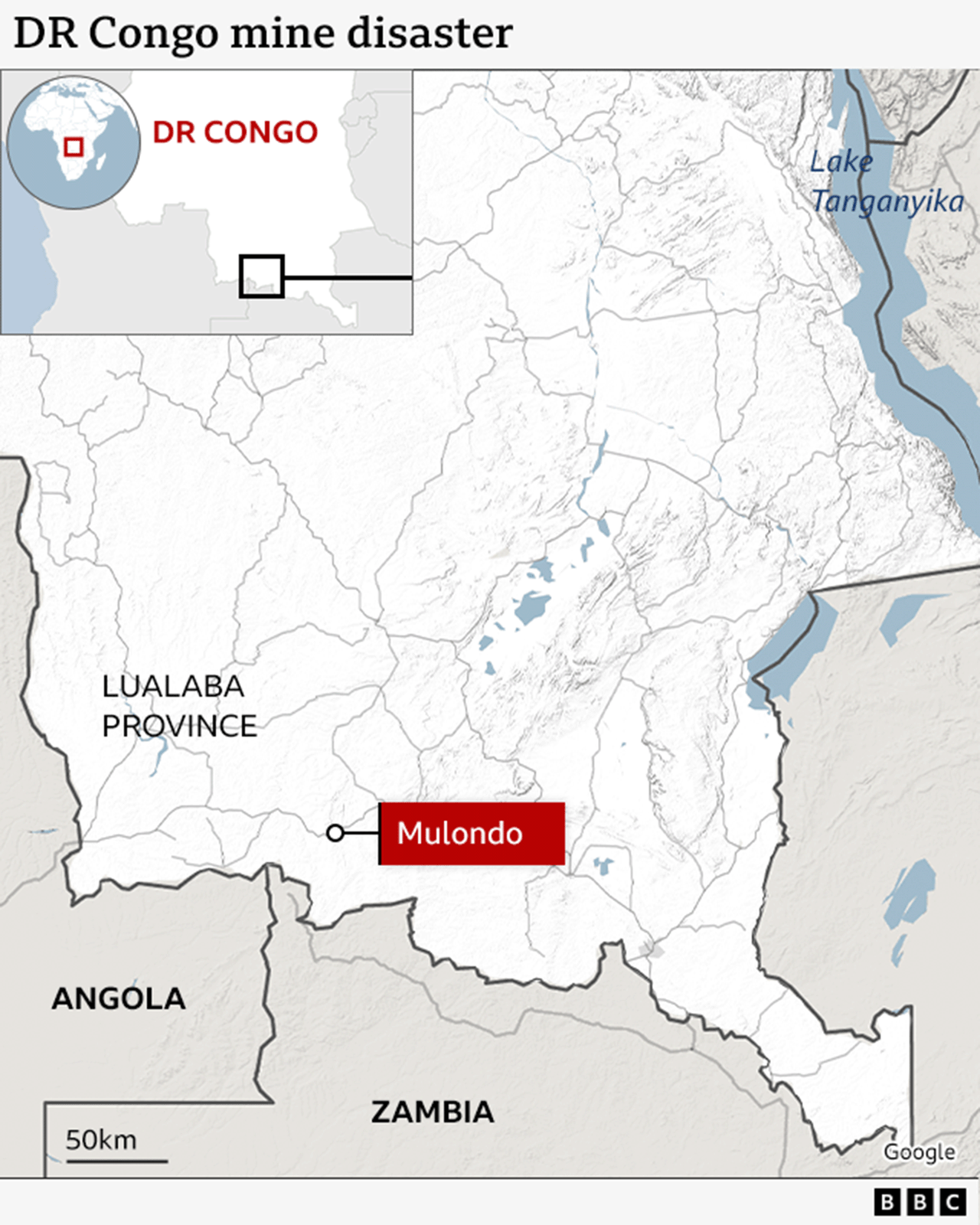Dozens die in DR Congo mine after makeshift bridge collapses

DR Congo is the world's largest supplier of cobalt, which is essential for batteries in electric vehicles
- Published
Rescuers are searching for survivors after a bridge collapsed at a cobalt mine in the Democratic Republic of Congo, killing at least 32 people.
Unauthorised miners forced their way into the southern Kalando mine on Saturday despite being banned from the site, said local official Roy Kaumba Mayonde.
Military personnel guarding the site then reportedly fired guns, causing the bridge to collapse after panicked miners rushed across it, government mining agency SAEMAPE said.
The military has not responded to this allegation.
Your phone, a rare metal and the war in DR Congo
- Published5 February
Such accidents are not uncommon in DR Congo, where around 1.5 to 2 million people work in the unregulated artisanal mining industry, which feeds the global demand for copper, cobalt and other minerals.
Two of the miners injured at Kalando mine, located in the village of Mulondo, sustained bullet wounds, Olivier Kayumba, a journalist who visited the scene on Sunday, said.
Mr Kayumba told the BBC that one miner had been shot in the thigh and the other in the hand.
In his statement, Mayonde said no miners had died from gunshot wounds. However, he did not say whether bullets had caused any non-fatal injuries.
Mayonde called the collapse at the mine "tragic", adding that mining companies in DR Congo were "frequently victims of this type of invasion of their concessions by illegal miners".
The miners had erected the bridge themselves, and the unstable structure was unable to sustain a large number of people making a "hasty" crossing, Mayonde said.
Images circulating on social media, which have not been verified by the BBC, appear to show the lifeless remains of the miners as locals look on in disbelief.
In a statement, Congolese authorities urged artisanal miners to take up the government's offer of alternative training in agribusiness, in an attempt to avoid the recurrence of such tragedies.
DR Congo is the world's largest supplier of cobalt, which has defence and aerospace applications as well as being essential for batteries in electric vehicles.
The process of extracting cobalt in DR Congo has been beset with concerns of child labour, human rights abuses and corruption.
Additional reporting by Emery Makumeno in Kinshasa

More BBC stories on DR Congo:
How DR Congo's Tutsis become foreigners in their own country
- Published22 February
DR Congo's failed gamble on Romanian mercenaries
- Published31 January

Go to BBCAfrica.com, external for more news from the African continent.
Follow us on Twitter @BBCAfrica, external, on Facebook at BBC Africa, external or on Instagram at bbcafrica, external
Related topics
BBC Africa podcasts
- Attribution